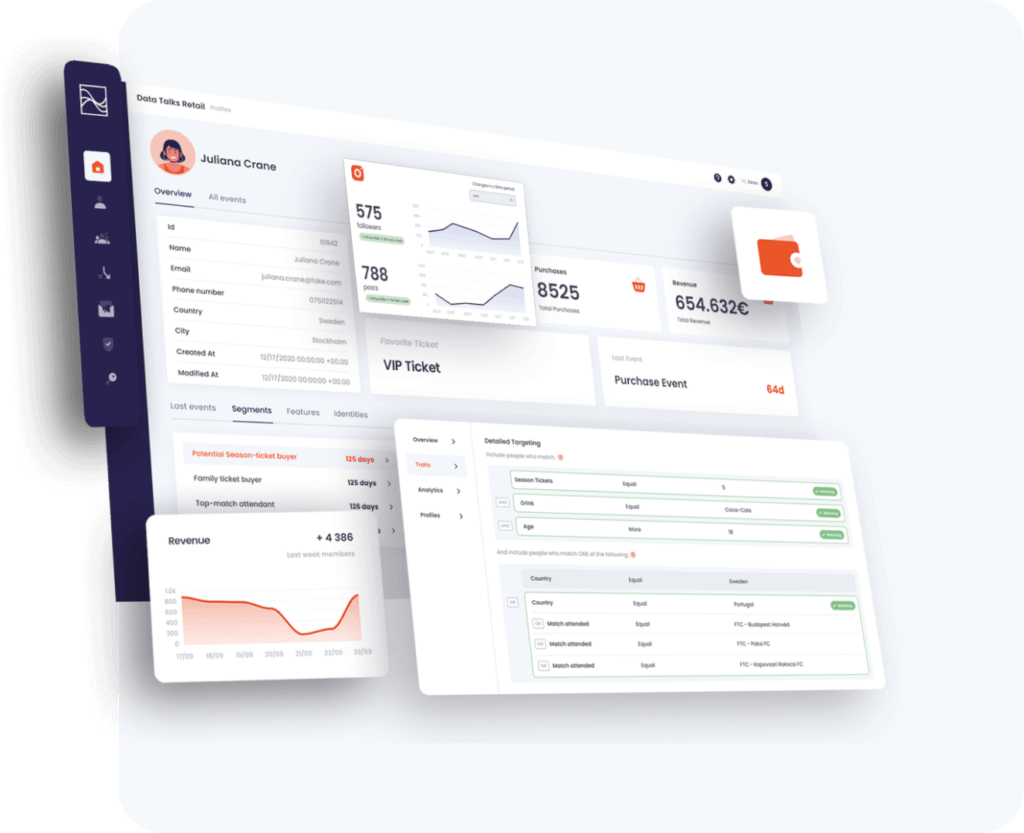
Sherlock Holmes once said “It is a capital mistake to theorize before one has data” . So, even the fictional Mr Holmes understands that theories and ideas without data are just presumptions, with no factual reality to give them substance. But did you know that even if you had data, that is not enough? That you need to analyze that data before you can use it to make any kind of decision. Whether it’s marketing campaign ideation or trying to get a good return-on-investment on a campaign , you would need data analytics. Data analytics matter for sports organizations.
That’s why in this blog post we will be discussing:

What data analytics are

Why sports organizations need data analytics

How to get started with data analytics today
Before we dive right in...
Subscribe to our blog today to ensure that you never miss valuable posts such as this one. We are passionate about helping sports organizations deliver a world-class fan experience, because better fan experience means better business. So why not use this opportunity to the fullest?

What is data analytics?
Before we discuss why data analytics matter we need to first establish what data analytics means. I am sure you know a little about this, but let’s just go through it so we are on the same page, shall we?
Data analytics is the process of analyzing data to make conclusions about that data. Simply put, it’s trying to make sense of a set of data – the meaning of the data and the implications of it for your sports organization. There are various ways to do this. Some include:
- Descriptive analytics – looking at what happened. In the case of a sports club for example, you would look at the number of tickets sold for a specific match or season.
- Diagnostic analytics – why something happened. If you see a sudden jump in ticket sales (to build on the example above), you can link this to a certain event, such as a marketing campaign.
- Predictive analytics – what is going to happen. Looking at your current and historical data, you can forecast what might happen. For example, if merchandise sales have historically rocketed during a specific period, such as Christmas, you can reasonably anticipate that would happen in the future. And take proactive action to benefit from that.
- Prescriptive analytics – what should be done next. Just like any other organization, I am sure you have goals you want your sports organization to achieve. This type of analytics answers the question, “what do we need to do to achieve this?”. So if, for example, your goal is to sell out tickets to your next match, then you would want to figure out, from a data analytics perspective, what actions you would need to take to do so. Remember the words of Mr Holmes: “It is a capital mistake to theorize before one has data”.
Why does data analytics matter?
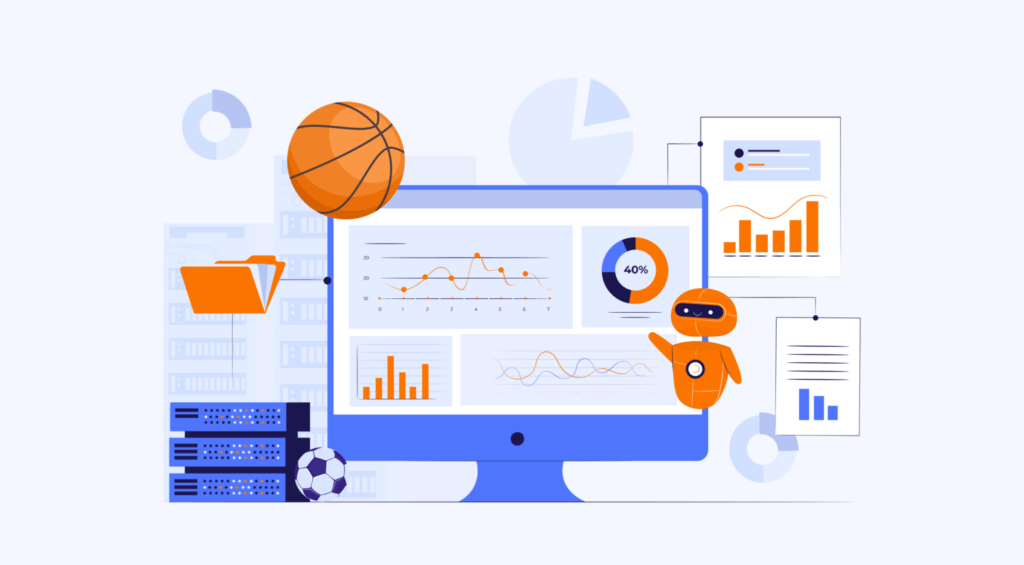
From the above examples of types of data analytics, I am sure you were able to deduce the importance of data analytics. That is, why data analytics matter. But let’s spell all this out. In a nutshell, data analytics help you understand:

What is happening
No matter your position in the organization, you need to stay up to speed with everything that is happening in the organization. Are you selling enough tickets? Has the monthly organizational revenue increased or decreased? Are your marketing communications effective? These are the kinds of questions data analytics help all teams, such as sales, marketing and finance, know about the organization in real time.

Why it's happening
Knowing what is happening is one thing but knowing why is another. When you know why something is happening, you can do something about it. So data analytics empower every team within a sports organization to know the why so that they can then be in a better position to solve the issue. Or sometimes, it might be that something incredible is happening. The team can also be equipped through data analytics to keep that good thing going. Helping the sports organization achieve unprecedented levels of success. I hope that by now you are on board with me when I say data analytics matter for sports organizations.

What might happen in the future
The present success of the organization is wonderful but equally as important is the success of the organization in the future. You know that saying, “let’s cross that bridge when we get there”? That’s not a great philosophy when it comes to the future of your organization. You want to be able to anticipate, with a reasonable amount of confidence, what might happen in the future. And that’s where data analytics come in.

What you need to do to get a desired outcome in the future
The best way to get results in whatever you do, is to be proactive. And this is where data analytics come in. They help sports organizations be proactive by setting goals and then figuring out how to achieve those. Without any guesswork. But rather with pure solid data and reliable insights obtained from the process of data analytics.
Some of the benefits you can reap
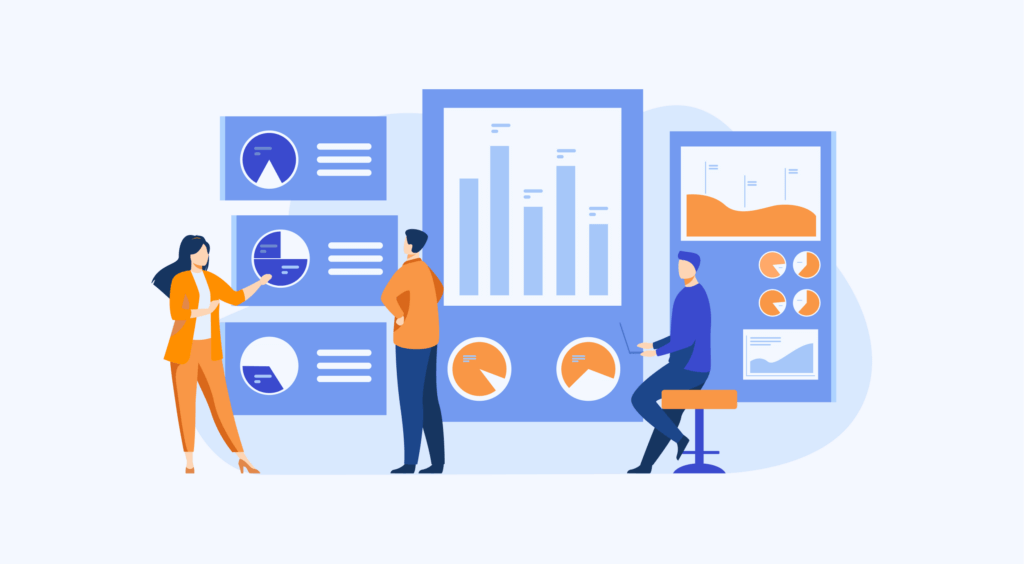
But let’s take this one step further. What business benefits can sports organizations reap from actively using data analytics? There are countless benefits of using data analytics. We can only mention but a few in this post however. These benefits include:
- optimizing an organization’s performance
- increasing effeciency
- maximizing profit
- helping you deliver relevant products, messages and experiences to your supporters
- help you segment and target your supporters better
- help you reach and engage with your supporters better through personalisation
- optimizing the decision-making process by giving a foundation for decision making
- proactivity & anticipating of supporters’ needs
- optimizing & improving your supporters’ experience
- identify new opportunities such as revenue opportunities and streamlined products and experiences
- helping your organization stay relevant while also future-proofing it
Why sports organizations need data analytics
If there is any one point I want to impress on you is that: the significance of data anaytics is not just confined to one department in your sports organization. Data analytics can be applied to different departments including, IT, marketing, management, finance, supporter services and sales, for example. That is why data analytics are the gift that keep on giving for sports organizations.
But to solidify this even further, how about we look at how this would like in your sports organization? We will discuss this by looking at several key people in your sports organization that will greatly benefit from data analytics. This is not to imply that other departments will benefit less. But it’s rather for the sake of time and keeping the scope concise, that we only look at these four roles. Which are:
- Chief Executive Officer – CEO
- Chief Commercial Officer – CCO
- Marketing Manager
- Digital specialist
Please bear in mind that some of the examples below, if not all of them, are not restricted to one role. But rather overlap as all departments benefit to differing extents.

Why Sports Organizations need a CDP to grow and thrive

Women in sports: beyond the hashtag – time to make a difference
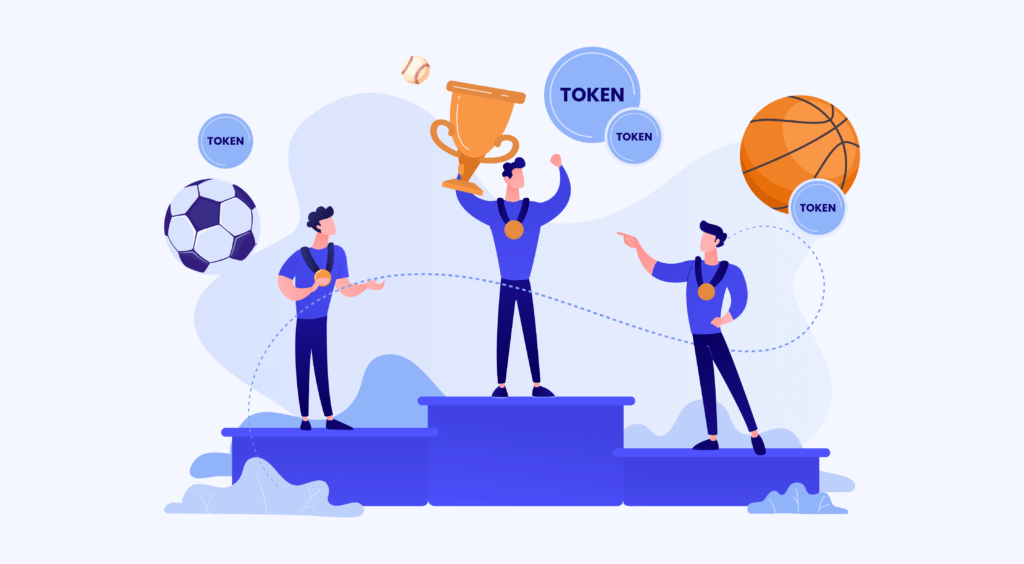
Everything You Need to Know About NFTs in Sports
Drill down into how a sports organization can benefit from all this
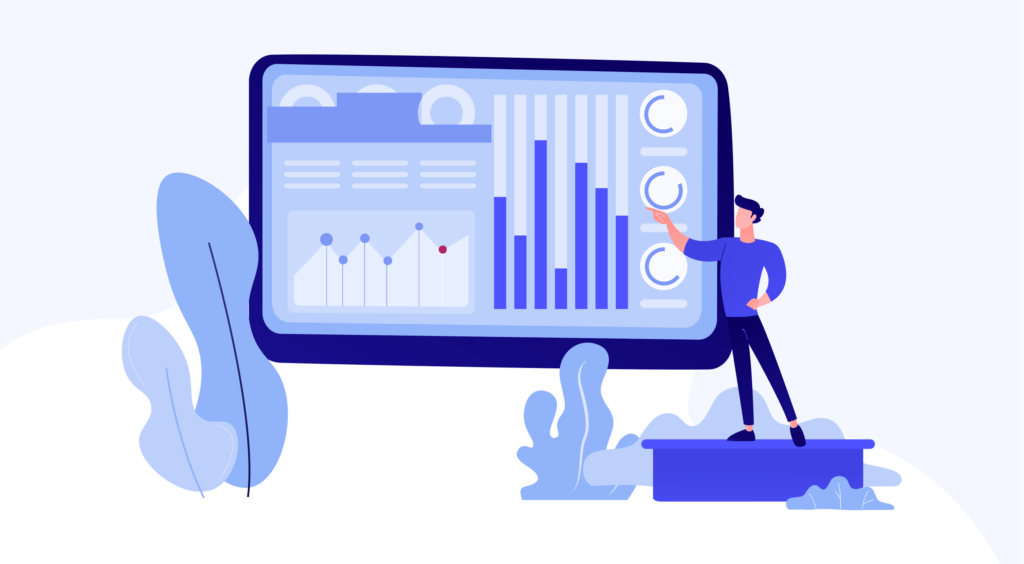
So, data analytics matter for a sports organization. No argument there now, right? But how does this look from department to department? Let’s start with the CEO.
Why the CEO needs data analytics
Are you shocked that data analytics matter for the CEO too? You shouldn’t be. It will all be clear in a second.
What are the key roles of a CEO? They include:
- Problem Solving & Decision Making
- Navigating Client Relationships & Communications
- Change Management
- Meeting revenue targets
- Setting strategy and vision
- building culture
- leading the senior teams
- allocating capital,
- negotiating contracts
- and signing new players
How can a CEO surely solve problems, make decisions, meet revenue targets, navigate client communications or lead senior teams without data analytics. Remember data analytics inform on what is happening, why it’s happening, what might happen in the future and how certain outcomes can be reached. By this logic, a CEO needs data analytics.
Why the CCO needs data analytics
So the CCO wants to:
- Set the commercial strategy
- Identify new commercial opportunities
- Increase revenue
- Monitor financial performance
- Lead the operational team
- Oversee procedures
- Assess supporter satisfaction
- Network and manage relationships
- Manage media channels ( e.g. OTT)
- Solve problems
- Ensure effeciency of processes within the organisation
- Find business solutions that empower employees to work smarter while optimising performance.
The CCO cannot set an effective commercial strategy without data analytics. You know why? Because that would be guesswork and wishful thinking. Much of what the CCO needs to accomplish is hinged on him understanding, what is happening, why it is happening, what might happen (this is where he will get inspiration for his commercial strategy) and what can be done to achieve certain goals. The CCO can most definitely not ensure efficiency of processes within the organization without data analytics.
This is where I invite you to work your way through the rest of the roles of the CCO and ask yourself if they can be fully satisfied without data analytics. If they can be satisfied without data analytics, how easy and straightforward would that process be?
Below is an example of how CCO can increase revenue and also empower their team to do so through data analytics:
Real life example: IFK Göteborg boosted their revenue by 10x on their Christmas campaign & 13x on their Black Friday Campaign
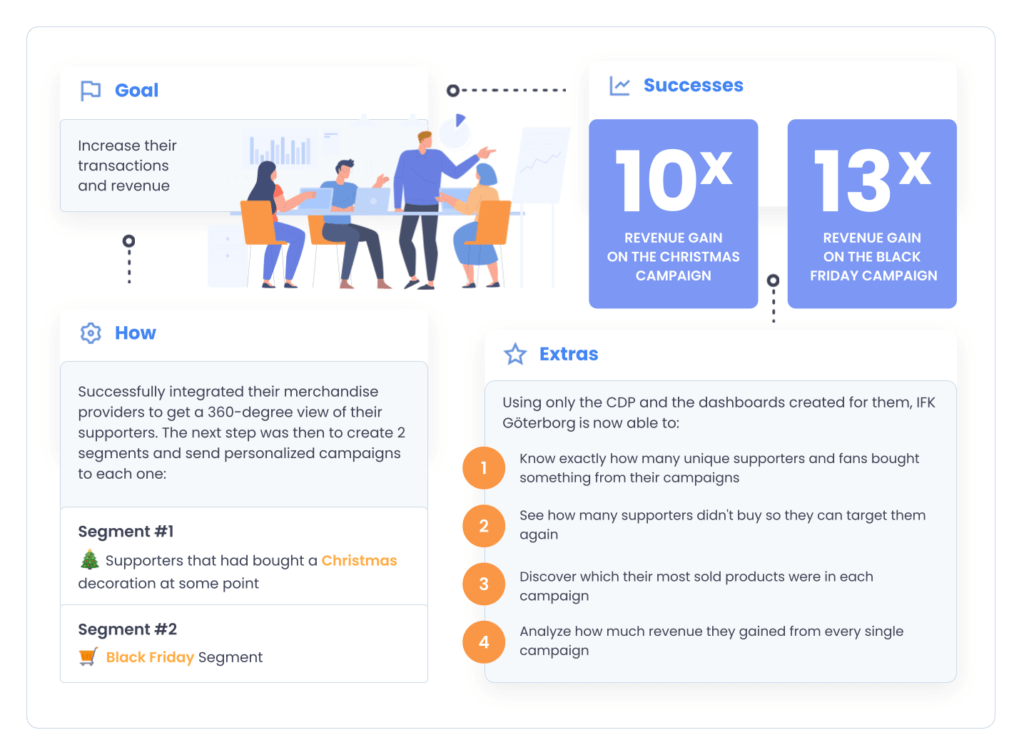
This is a real life example of what happens when a CCO or whoever is in charge of making sure your sports organization has access to the best data analytics, does their job well. IFK Göteborg managed to increase their revenue by 10x on their Christmas campaign & 13x on their Black Friday Campaign. While the CCO was not the one who ran this campaign, he empowered his team to do so by finding business solutions that empower employees to work smarter while optimizing performance.
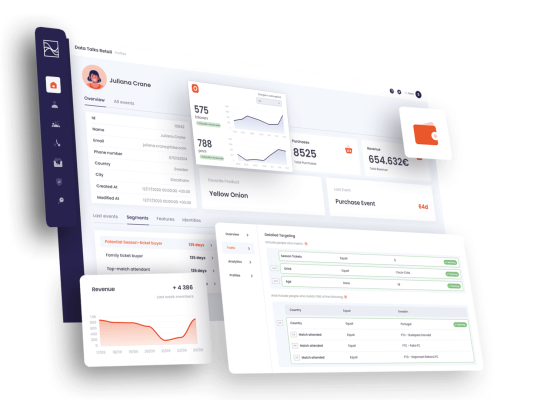
To see how this would look in action, explore the Data Talks CDP demo >>
Why the marketing manager cannot work effectively without data analytics
The above example does not only show why data analytics matter to the CCO but also why they are a necessity for the marketing manager. The one who creates and runs campaigns. Without data analytics, creating and running marketing campaigns would be like trying to find gold in a dark mine without any source of light. You would be groping around blindly and possibly even grasping at straws.
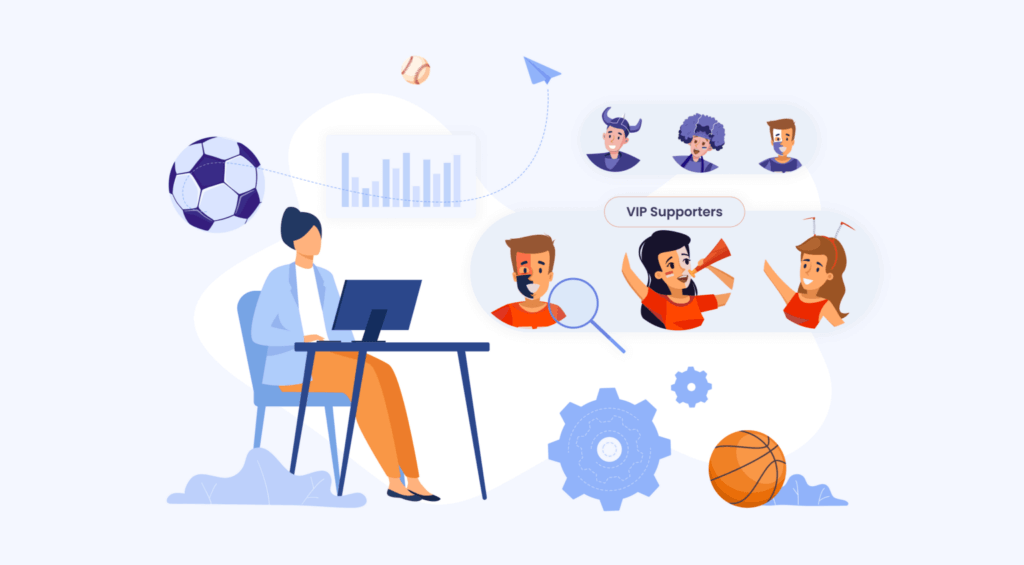
These are some of the marketing functions that would be impossible without data analytics:
- Segmentation and targeting
- Personalized communications
- Successful campaign creation and monitoring
- Increasing fan engagement
- Improving fan experience satisfaction and loyalty
- Increasing supporter lifetime value
Growing your supporter contact database
Of course the digital specialist needs data analytics
The role of digital specialist looks different from sports organization to sports organization. However, most digital specialists have the very important task of helping the whole sports organization understand the health of the organization. That is, they use data analytics to tell the story of where the sports organization currently stands. So in a sense they are like the thermometers of the organization. They check the hotness (success) and the coldness (things to be improved) for the organization. That’s why data analytics matter so much for digital specialists.
Digital specialists also help organizations with:
- Data collection
- Implementing security measures
- Installing and updating company software and hardware as needed,
- Marketing and communication
- Optimizing database,
- Data processing efficiency
This is the perfect juncture to then question how you are making the most of data analytics.
How are you using data analytics today?
I am going to ask you several questions so you can gauge for yourself how effective your data analytics strategy is.
- Is your supporter data stored in many different sources?
- Can you only collect mostly third party data?
- Is your data collected manually or automatically?
- Can you share your data easily with other team members across different departments within your organization?
- Can you share this data with many different systems and softwares as well?
- Is your collected data updated in real time with every interaction your supporters make with your organization?
- Is the data unified and cleaned to give you a complete 360-degree view of each and everyone one of your supporters?
- Can you perform your data analytics in the same solution as where your data is stored? Or do you need to do this in a separate system or tool altogether?
- Is your data analytics dashboard user friendly in that it is simple to make sense of?
- Can all those who want to access insights from your analytics dashboard gain these insights without specialized assistance? That is, can they do so autonomously?
- Do you have you have 24/7 access to your data analytics dashboard? Or do you need to consult someone externally everytime you want some insights from your dashboard?
- Can you act on your insights immediately, in the same platform as your data analytics and data collection?
- Can you collect and unify data, perform your data analytics, segment and target, personalize your communications and then retarget your supporters – all on the same solution?
If you did not answer yes to all of these questions, then you should reconsider your current set-up. There’s a way for you to get all these benefits – in one solution. That’s right. All in one solution.
How you can harness the power of data analytics
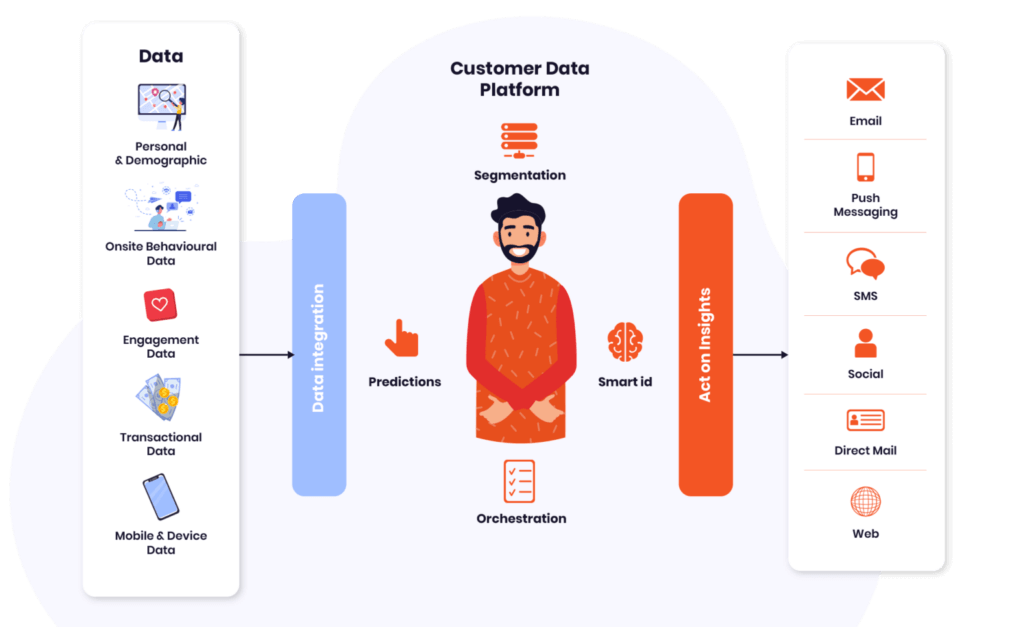
The CDP is the only solution that can help you do all the functions we asked in the questions above. While simultaneously helping you harness the power of data analytics. And you are in luck because Data Talks specializes in a sports CDP, that is a CDP that is tailor made for sports organizations. With us, you will have a partner who has:

Intimate knowledge about how a sports organization operates on a day to day basis. So we understand your pain points that you experience within your organization and the best way to resolve them.

Unique insights gained from our experience working extensively with sports organizations across different markets and countries. So we will give you the best practices and use cases of the CDP in a way that produces results.

Deep understanding of the seasonal ‘fluctuations’ in the operation of a sports organization, especially around tournaments and championships. We are therefore better able to customize and hyper-personalize the CDP functionality to your organization providing a more efficient work method.
Data analytics matter, in sum, because they allow sports organizations to have the best success they can possibly have, now and in the future. And we can help you with this. We can help you ensure that the entire organization, thanks to data analytics, contributes to this success. So we will ensure that right from the beginning, you can monitor what is happening, why it is happening (and respond appropriately) and what is most likely to happen in the future. We will empower you to essentially get to control your organization’s future.
